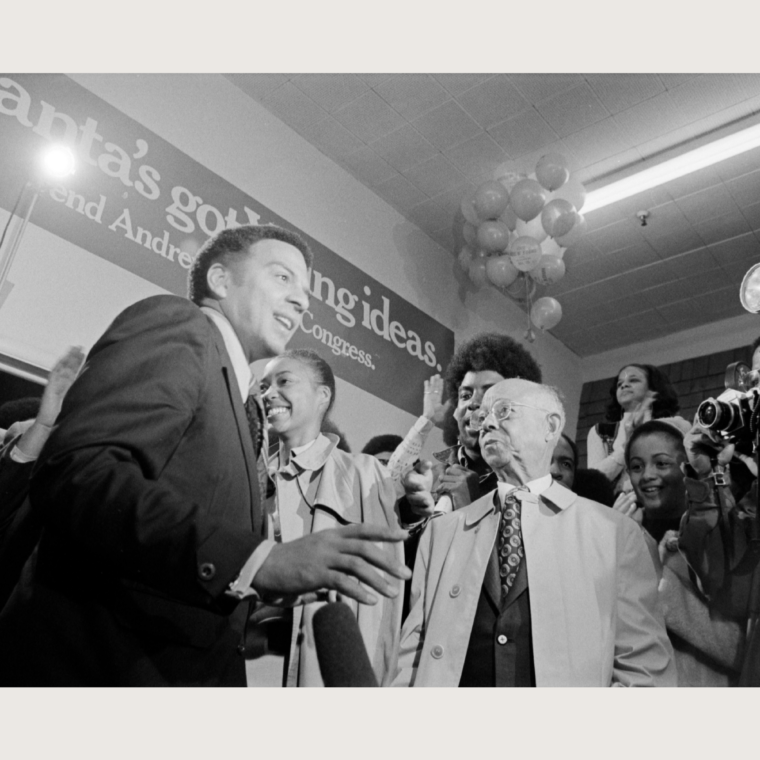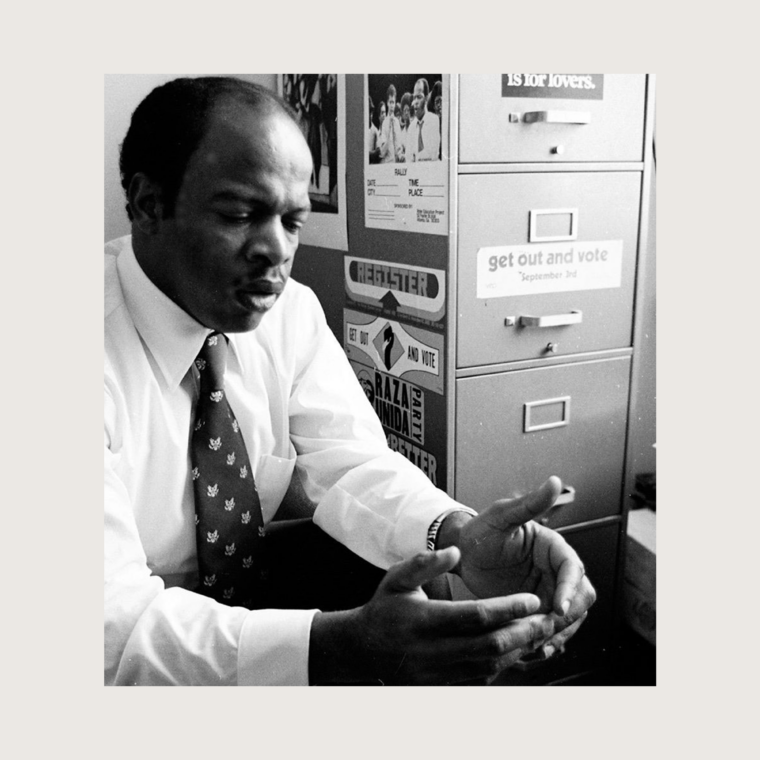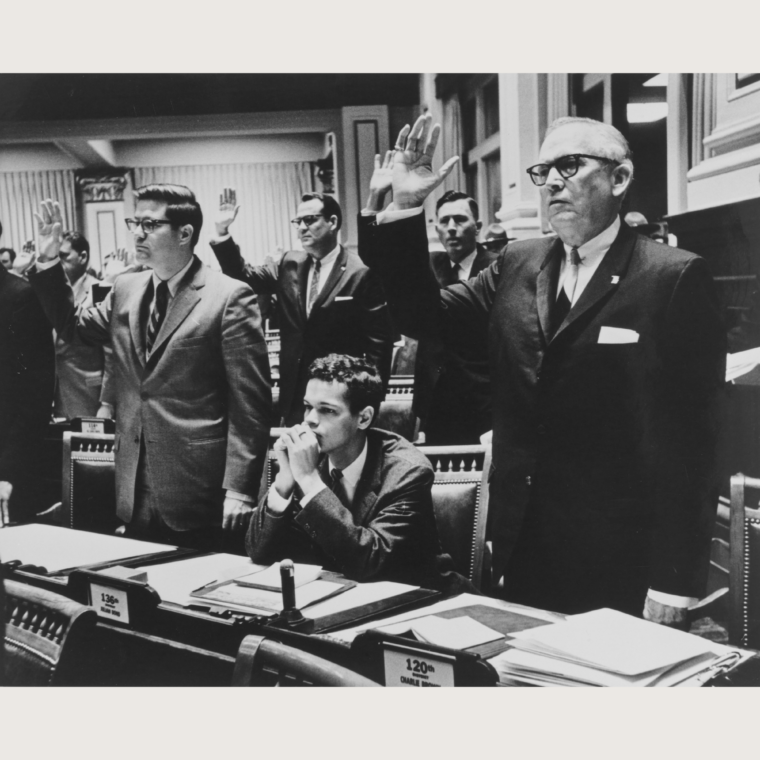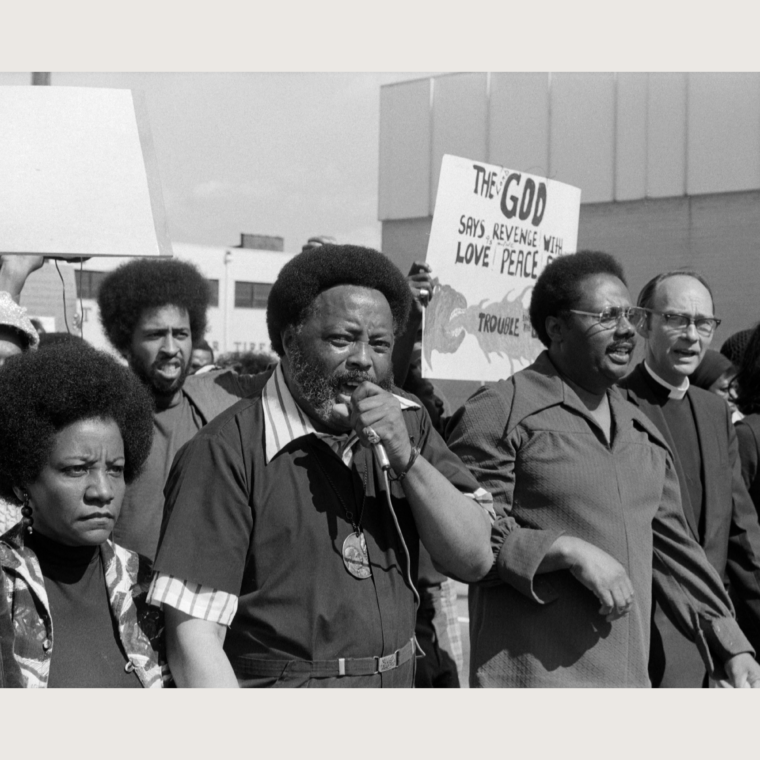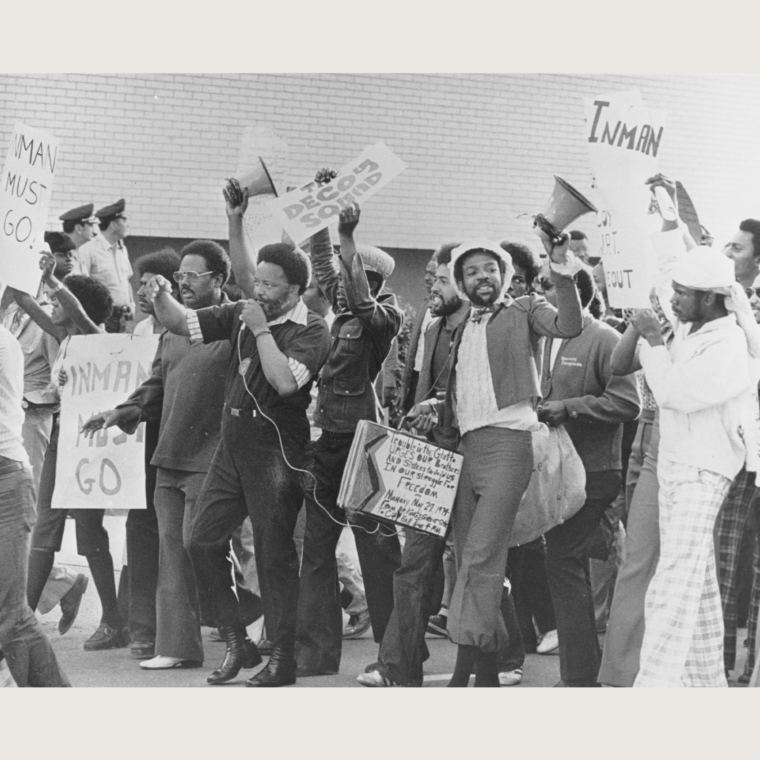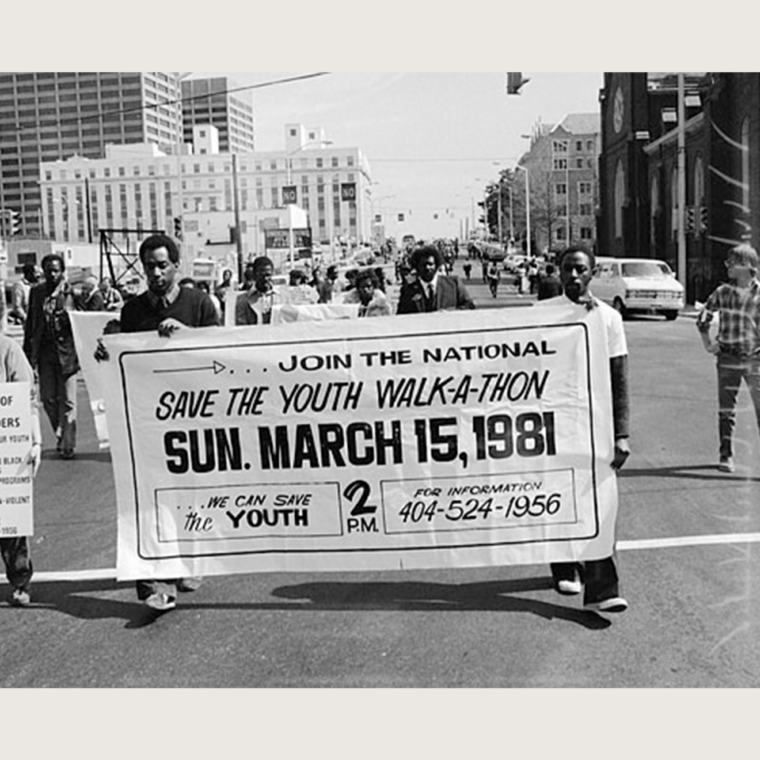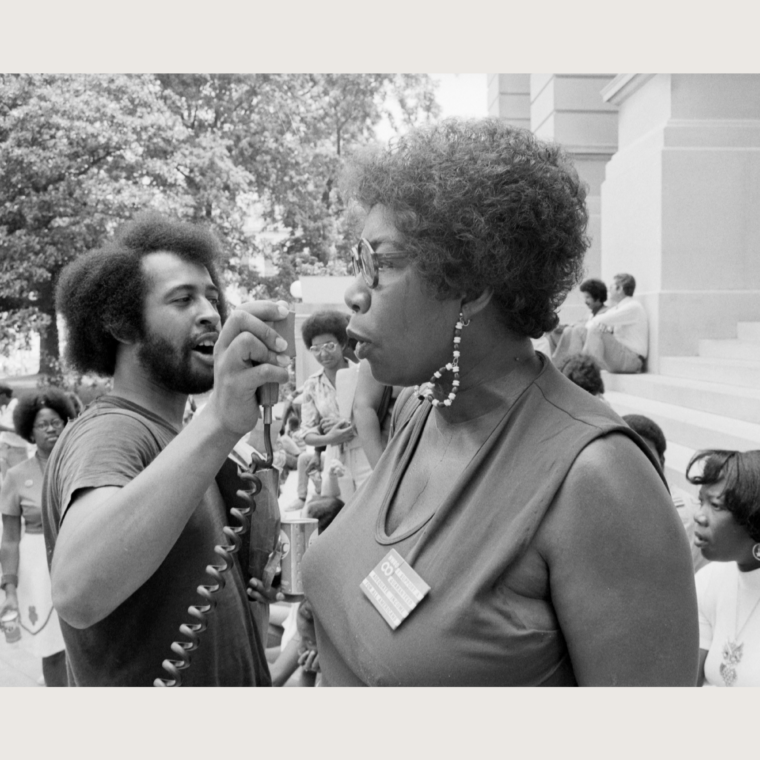5/7 Political Power
As a result of significant strides in legislation and efforts from leaders during the 1960s Civil Rights Movement, a new Black political class rose during the 1970s.
The Civil Rights Act of 1964 outlawed racial and ethnic discrimination in activities receiving federal financial assistance, including restaurants and public facilities taking part in interstate commerce. The National Voting Rights Act of 1965 prohibited discriminatory voting practices, such as literacy tests that were often used in the South to prevent African Americans from voting.
These acts—far reaching in their scope and impact – were important milestones in securing the rights of African American citizens and improving the state of democracy in the United States. Both were achieved in large measure by the determined efforts of student activists, including those of the Atlanta Student Movement.
Header Image: Supporters of Atlanta mayoral candidate Maynard Jackson campaign prior to the run-off election on October 16, 1973. Boyd Lewis photographs, VIS 101.475.014, Kenan Research Center at Atlanta History Center
Black Political Power in the 1970s
In the 1970s, middle class, college-educated African Americans were benefiting from expanding economic opportunities and growing political power that came as a result of comprehensive legislation. Lonnie King, Benjamin Brown, Julian Bond, and other veterans of the Atlanta Student Movement became active in local politics. In 1973, Atlanta elected Maynard Jackson as the city’s first African American mayor. Civil Rights Movement icon Andrew Young succeeded Jackson in 1982.
A New Civil Rights Movement
A new Civil Rights Movement of the 1970s formed with a new Black political class and leaders seeking to enhance political power and consolidate freedoms won in the 1960s. While the movement of the previous decade had success in areas related to segregation and voting rights, there were still significant strides to be made in housing, labor, police brutality, and other civil and human rights issues.

